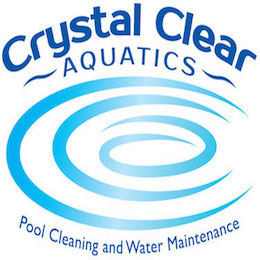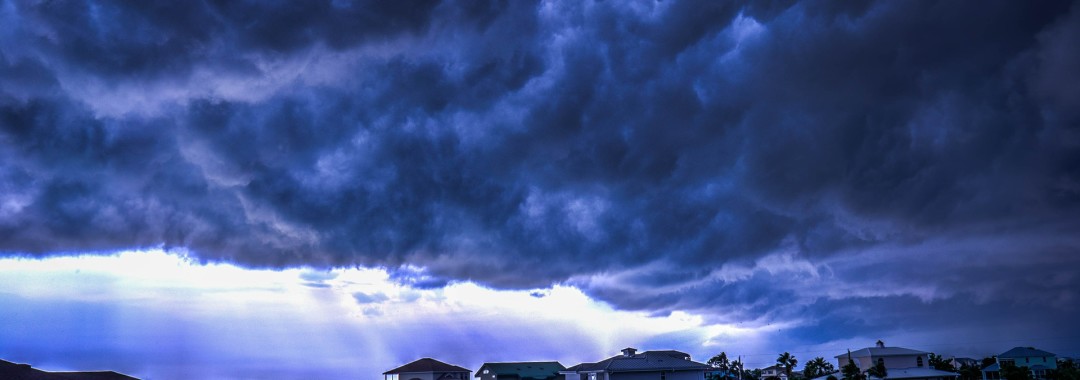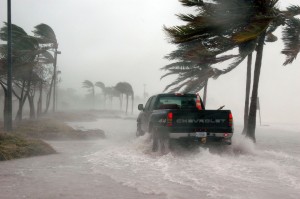 Rainwater is known to have acidic properties that can negatively affect your pool water chemistry balance. This can affect anything from the pH balance to alkalinity levels and more. The pH of rain across the US, which is an acid rain, is due to industrial atmospheric gasses which results in nitric and sulfuric acid.
Rainwater is known to have acidic properties that can negatively affect your pool water chemistry balance. This can affect anything from the pH balance to alkalinity levels and more. The pH of rain across the US, which is an acid rain, is due to industrial atmospheric gasses which results in nitric and sulfuric acid.
Rain and Pool Water
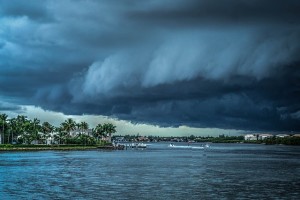 Rainwater falling directly into your pool being a bad thing, but something even worse can happen. When you have rainwater coming off your landscape or deck, you now have an added source of water to deal with. When rainwater and ‘yard/deck rain run off’ enter the pool, they can change your water’s pH, calcium hardness, total dissolved solids (TDS), alkalinity and other chemical levels as well as bring contaminants as well as dirt and debris into the pool. Because rainwater across the US is generally acidic, your pool water can become corrosive and cause damage to the plaster and metal parts of your pool.
Rainwater falling directly into your pool being a bad thing, but something even worse can happen. When you have rainwater coming off your landscape or deck, you now have an added source of water to deal with. When rainwater and ‘yard/deck rain run off’ enter the pool, they can change your water’s pH, calcium hardness, total dissolved solids (TDS), alkalinity and other chemical levels as well as bring contaminants as well as dirt and debris into the pool. Because rainwater across the US is generally acidic, your pool water can become corrosive and cause damage to the plaster and metal parts of your pool.
Obviously, the harder the rainfall, the more the chemistry changes in your pool. A light rain should have little to no effect on your pool, though it’s still a good idea to test your pool water chemistry after any rainfall.
It is also a good idea to drain excess water, bringing your water to an appropriate level for proper skimming.
After a Heavy Rainfall
After a heavy rain fall, the first thing you should do is clean the water and check the water chemistry with test strips, including the pH, alkalinity and sanitizer levels.
- Clean Your Pool
Heavy rain comes with heavy winds, and winds can blow dirt, leaves and other debris into your pool.
First, skim your pool, then vacuum. You can use an automatic pool cleaner or manually vacuum the pool yourself. Once your pool is cleaned, you can test the water chemistry.
CCA cleaning pool service includes: vacuuming, skimming, and brushing. When these tasks are preformed every week, you will have a nice clean swimming pool.
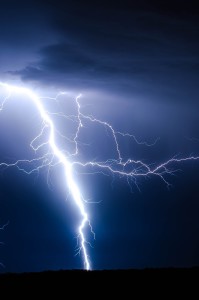 Check pH and Alkalinity Levels
Check pH and Alkalinity Levels
Acid rain can cause your pH to drop. When rain starts to lower the pH, the alkalinity will take the big hit. That means, your alkalinity levels might see a more drastic change than your pH levels. A quick call to Crystal Clear and your water can be tested and treated in no time.
- Check Sanitizer Levels
You also want to check your chlorine or sanitizer levels. Rain can often introduce contaminants to your water, and your sanitizer will start attacking the contaminants. Rain also dilutes the sanitizer levels. Your sanitizer level might be low as well. So be sure to check these levels. CCA has accurate, professional testing of pool water chemistry.
- Check Your Water Level
Of course, rain will add more water to your pool than what’s needed. If you have an excess of water to your pool, you can drain it a little by using your filter’s “waste” setting. Just let the pool drain until it is back at the normal level.
Should You Shock Your Pool?
Shocking your pool isn’t necessary, although, it’s not a bad idea either. If you get a heavy rain fall, you could shock your pool for good measure. This will help fight off any contaminants that the rain may have brought to your pool. Make sure you drain the water to the correct level, check your pH, alkalinity and sanitizer levels, and then after the rain has ended.
Or, sit back…and when the sun Comes out – Call Crystal Clear at 561-318-6750!
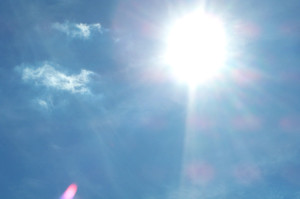 CCA After Storm Pool Care West Palm Beach Florida will;
CCA After Storm Pool Care West Palm Beach Florida will;
Check water level and adjust accordingly.
Skim and Remove Debris – Remove branches, leaves, and other debris from the pool with a rake and skimmer.
Check the Skimmer Baskets and Pump Strainer – There’s a good chance these have been filled with dirt and debris from the storm. We clean them out to prevent clogging the system once power is restored to the pool.
Inspect ALL Pool Equipment – Uncover the pump motor and check for water or water damage. If the equipment is dry, we can turn the power back on and start running the pool’s filtration system. If you are doing this yourself, do not turn the power back on if the equipment is wet or if there are signs of water damage. Contact a professional.
Thoroughly Clean the Pool – when the pool circulation is back on, it’s time to clean the pool. CCA will brush the pool walls and professionally vacuum your pool with commercial grade equipment.
Shock and Chemically Balance the Water – Even though you may treated the water before the storm, the organic materials in the rainwater most likely wiped out chlorine levels and lowered the water’s pH and alkalinity to unacceptable levels.
